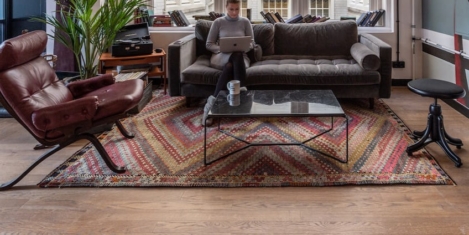To provide the best experiences, we use technologies like cookies to store and/or access device information. Consenting to these technologies will allow us to process data such as browsing behaviour or unique IDs on this site. Not consenting or withdrawing consent, may adversely affect certain features and functions.
The technical storage or access is strictly necessary for the legitimate purpose of enabling the use of a specific service explicitly requested by the subscriber or user, or for the sole purpose of carrying out the transmission of a communication over an electronic communications network.
The technical storage or access is necessary for the legitimate purpose of storing preferences that are not requested by the subscriber or user.
The technical storage or access that is used exclusively for statistical purposes.
The technical storage or access that is used exclusively for anonymous statistical purposes. Without a subpoena, voluntary compliance on the part of your Internet Service Provider, or additional records from a third party, information stored or retrieved for this purpose alone cannot usually be used to identify you.
The technical storage or access is required to create user profiles to send advertising, or to track the user on a website or across several websites for similar marketing purposes.
 Global markets are changing at an unprecedented rate due to economic uncertainty, shifting consumer behavior, and technological breakthroughs. Businesses must be agile and able to adapt to market changes. This is where Business Process Outsourcing (BPO) comes in. What was once viewed as a cost-cutting tool has evolved into a strategic advantage, providing businesses with the flexibility they require to remain competitive and resilient during volatile periods. (more…)
Global markets are changing at an unprecedented rate due to economic uncertainty, shifting consumer behavior, and technological breakthroughs. Businesses must be agile and able to adapt to market changes. This is where Business Process Outsourcing (BPO) comes in. What was once viewed as a cost-cutting tool has evolved into a strategic advantage, providing businesses with the flexibility they require to remain competitive and resilient during volatile periods. (more…)






















 With the vast majority (86 percent) of UK businesses planning to offer employees greater flexibility around where they work, leaders are focused on ensuring employees feel included regardless of their location, according to new research from
With the vast majority (86 percent) of UK businesses planning to offer employees greater flexibility around where they work, leaders are focused on ensuring employees feel included regardless of their location, according to new research from 
 New research released by
New research released by 







October 12, 2021
Time for businesses to step up and deliver flexibility and wellbeing for workers
by Nick Gold • Comment, Flexible working, Wellbeing